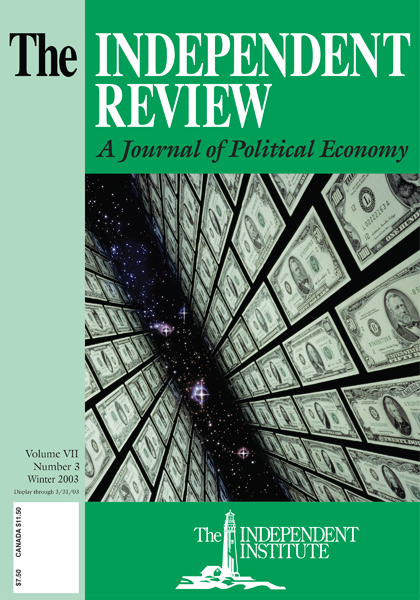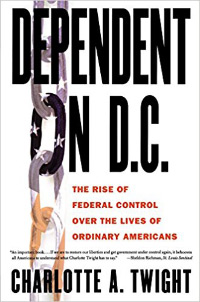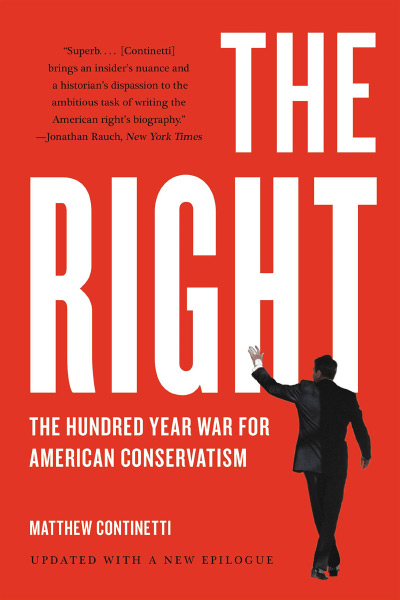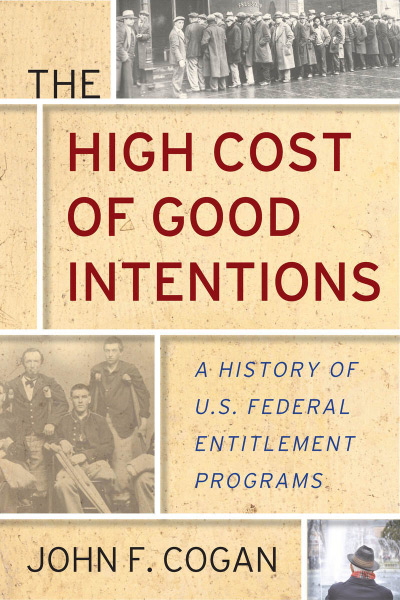A great fallacy dominating social thought today is the idea that democracy works—that is, that it translates popular desires into public policy in an intelligible, defensible way. It is something of a puzzle why this idea has taken hold among academic social scientists, for it practically screams with logical gaps and unfounded assumptions. To start with, it is a mathematical impossibility that an election—the voting for one candidate instead of another—can transmit citizen opinions on the scores of thousands of policy questions that government deals with every year. Expecting that result is like expecting a computer with one binary memory cell to be able to store the Encyclopedia Britannica.
Beyond this elementary flaw are many, many more, and in Dependent on D.C. Charlotte Twight has raised one of the more interesting flaws. It has to do with the neutrality of public officials. The theory of democracy assumes that the public is able to make an informed choice, that it is presented with a full, objective account of the policies under consideration. For that situation to exist, administrators and lawmakers have to be scrupulously honest and objective in presenting policy alternatives. They can’t be partisan advocates trying to “sell” their programs, misrepresenting its expected effects and covering up evidence of failure.
Welcome to the real world, says Twight, where public officials are cynical—and often unscrupulous—partisans. They do not see their job as that of providing the public with a balanced account of the programs with which they are involved. Instead, they present as biased and self-serving a picture as they can get away with. For example, Twight points out that when the Social Security system was established, the idea did not come from “the people.” The promoters were the left-wing administrators of the Roosevelt administration, who worked overtime “spinning” the proposal to make it palatable. They called the Social Security tax a “contribution”; they hoodwinked workers into thinking employers were paying half the cost; and they claimed the existence of fictional “trust funds.”
Twight shows how once programs are established, they foster organizations of beneficiaries who further pollute the public debate with self-serving (and usually tax-funded) propaganda in favor of program expansion. As a result, once a program is adopted, the public never again gets an unbiased view of it and therefore never gets a meaningful opportunity to get rid of it.
Twight does a good job debunking the idea that the welfare megastate we now have is the result of popular desires rationally translated into policy, as all too many naive academics would have it. The question is, Where do we go from here? On this point, the book is less than satisfactory. Twight takes the position that in its original form the U.S. government was a durable, healthy arrangement and that our aim should be to claw our way back to that starting point.
This hope, however, overlooks the many insoluble contradictions in the theory of democracy itself. Had Twight delved a little more deeply into her own theme—neutrality in public officials—she might have noticed the problem. It certainly is true that the theory of democracy requires that public officials not be partisan advocates, but at the same time that very same theory also requires the opposite! You cannot have a meaningful election campaign unless voters are offered alternatives by candidates who take positions on policy questions. If candidates do not stand for anything, if they are truly neutral, an election cannot transmit anything about popular wishes.
Furthermore, an election is a marketing contest. An election cannot be won by a candidate claiming to have no opinions and promising to do nothing in particular if elected. Hence, the use of elections necessarily opens the door to partisanship, spin, cover-ups, and false promises. So Twight’s ideal of neutral public officials is (a) logically incompatible with the theory of electoral democracy and (b) empirically incompatible with the requirements of electoral success.
Processes of distortion and misrepresentation in democratic politics didn’t begin with the New Deal. They started on day one. Take the Declaration of Independence, cited by Twight as the secure and proper foundation of government. John Locke’s original, careful formulation had government protecting “life, liberty, and property”—a reasonably clear and limited task. When Jefferson came to borrow this idea in writing—or, rather, in “selling”—the Declaration, he wanted to appeal to a broad audience, including the propertyless masses, so he hyped the language, making it government’s job to secure the rights of “Life, Liberty, and the Pursuit of Happiness.” A fair reading of this demagogic promise allows government to take away property (dropped from the list of protected rights) in order to provide things necessary for the pursuit of happiness—medical care, education, or, heck, just plain money. Thus, even in the Declaration of Independence, the holy torah of limited government, we see the worm of democratic trimming at work.
Twight’s proposal to bring the nation back to its constitutional roots is unpersuasive. Even if that heroic exercise in clock reversal might be accomplished, we still would be left with democratic government, a system that, as I say, is laden with contradictions and unrealistic assumptions. We might spare ourselves much frustration if we stopped taking democracy seriously, as if it were a rational, defensible system. It isn’t. It’s a muddle through which the human race passes on its way to something more coherent.
| Other Independent Review articles by James L. Payne | ||
| Winter 2017/18 | The Government Nobody Knows—nor Wants to Know | |
| Summer 2016 | Government Fails, Long Live Government! The Rise of “Failurism” | |
| Fall 2014 | The Real Case against Activist Global Warming Policy | |
| [View All (11)] | ||


















